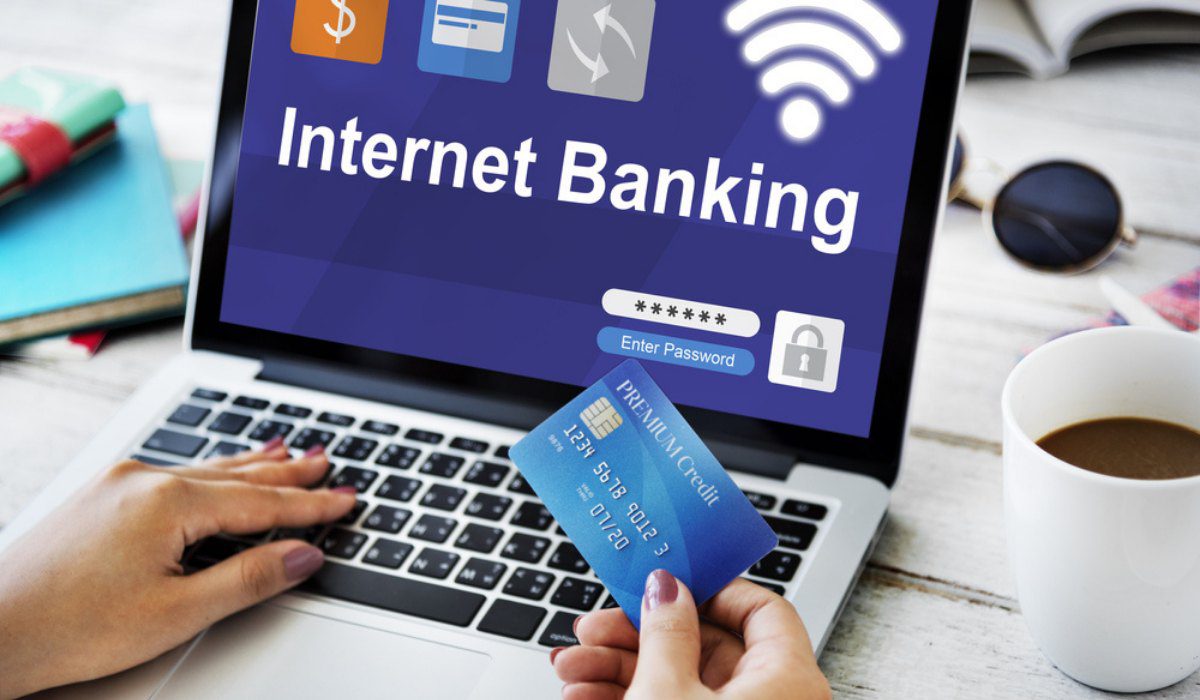Internet banking, also known as online banking, e-banking, or virtual banking, is an electronic payment system that allows customers of a bank or other financial institution to conduct a series of financial transactions through the financial institution’s website. It Enables
What is Internet Banking?
Internet banking is a system that allows a customer to conduct financial and non-financial transactions from his net banking account. The user can transfer funds from his account to other versions of the same bank / different bank using the website or online application. The customer uses resources and media to conduct financial transactions. The help used by the customer can be an electronic device like a computer, laptop, or mobile phone. The Internet is the medium that makes technology possible.
With online banking, consumers cannot visit a bank branch to complete their basic banking transactions. They can do all this at their convenience, at home, at the office, or on the go.
Online banking requires a computer or other device, an internet connection, and a bank or debit card. Customers must register for their bank’s online banking service to access the service. To write, they need to create a password. Once they do, they can use the service to do all their banking.

Features of Internet Banking
Customers using this facility can conduct transactions and non-transactional functions, including:
- Customers can view account details.
- The customer can check the transaction history for a specified period by the bank concerned.
- Banks, statements, different forms, and applications can be downloaded.
- Customers can pay any bill, recharge their mobile, DTH connection, etc.
- The customer can buy and sell on the e-commerce platform.
- The customer can invest and operate the business.
- The customer can book transportation, travel packages, and medical packages.
Advantages of Internet Banking
- Customers get permanent access to their bank anytime and anywhere.
- Transactions are secure and highly secure.
- Instant money transfer helps the user in times of urgent need.
- This saves the user valuable time.
- Whenever you withdraw money, it immediately informs you on your mobile, because of which you can easily monitor your account.
- You can do all the functions of your bank through this, as we can see, the balance. You can add money to anyone’s account. Also, FD and RD can be opened and closed.
Disadvantages of Internet Banking
There is a lot of loss in the amount of profit in all work.
- You cannot do any work when net banking is required and the server is down. You may suffer a lot when the connection speed is slow, or the server goes down while doing any money transaction.
- If an unknown person comes to know about your NetBanking account, he can withdraw all the money from your bank immediately, which can cause you heavy damage.
- Net banking has now made everyone lazy. The effect of this is also seen in other works.
- The bank calls Net Banking free, but it is not free. When you use it, you are charged many types.
Things to keep in mind while starting Internet banking –
- It would help to always use net banking on your computer or mobile. It should not be used on any other device. This can be dangerous.
- Delete the apps that do not work on the computer or mobile in which you use it. And have the right apps installed. It steals your information, which is misused.
- When Internet banking is not required, log out of the account or turn off the Internet at that time.
- Do not use internet banking in cyber café or any computer outside. Also, do not use public place wifi for net banking. In such a situation, there is a risk of your account information being leaked.
- Install a good antivirus on your computer; only then use net banking. Antivirus protects your computer from security threats like malware, phishing.
Security of Internet Banking
The financial information of a customer is essential. This is why the client trusts financial institutions. Financial institutions place it on a high priority that the security of customers’ accounts is not breached. Financial institutions are using two types of security methods to make Internet banking secure:
PINs / TANs are used — for this system, a PIN is used for logging in, and TANs are used to conduct transactions. TANs are one-time passwords. It is valid for a short time. The TAN is sent to the subscriber via SMS on the registered mobile number, which matches the login user ID.
